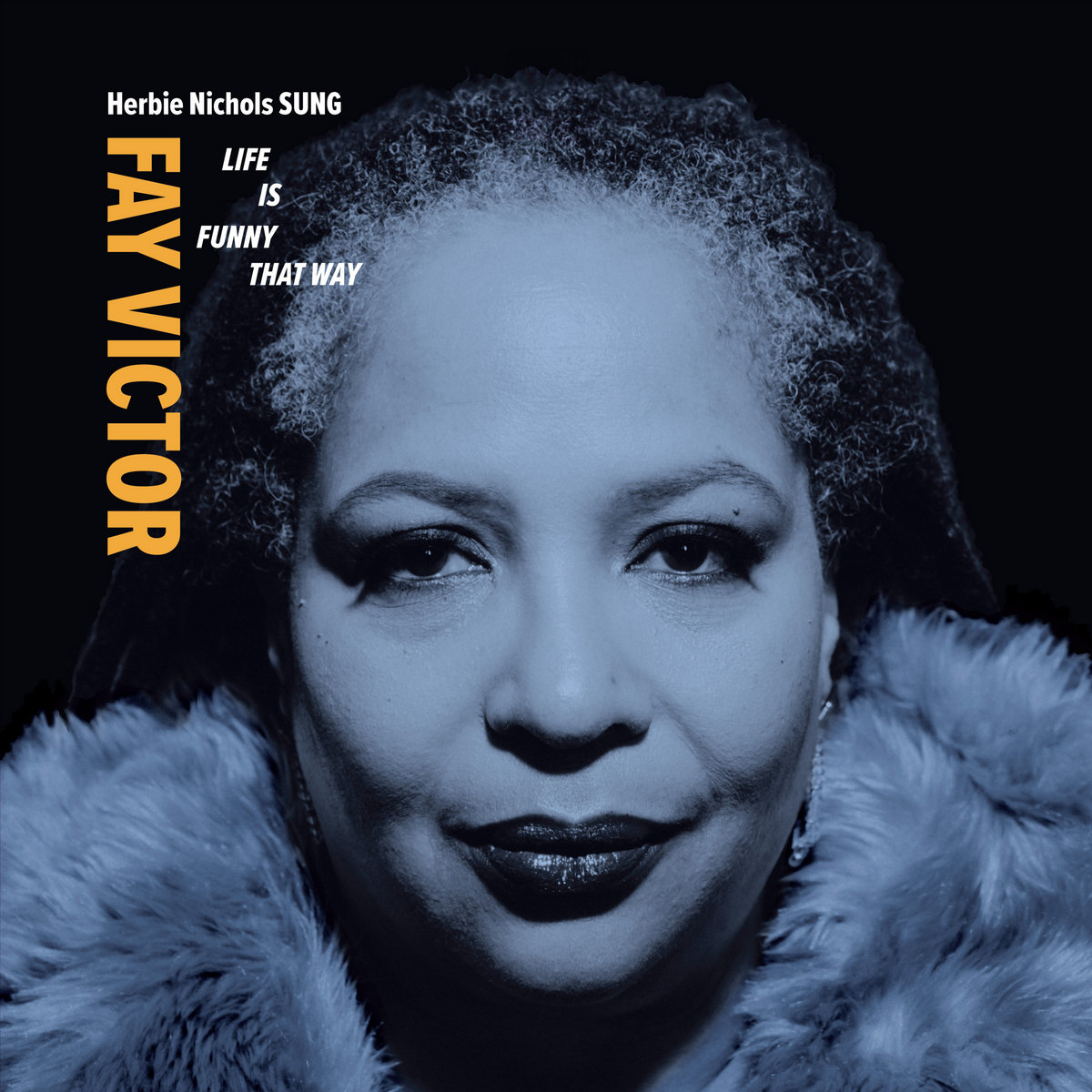
This ambitious concept grabbed me: a jazz singer adapting tunes of iconoclast bop-era pianist-composer Herbie Nichols. He’s a fascinating, under-sung, short-lived jazz hero (dead at 44). But I never thought of him as vocalist material. 1 Well, leave that to Victor, who knew her idea demanded a leap, imaginatively and technically, a leap as serious — and playful — as Nichols was. 2.
So, failing to find the block of listening space I felt the two-album set deserved, I finally put it on while I was doing something else at the computer. Almost instantly Victor, and her concept band Herbie Nichols Sings, began insinuating themselves into my consciousness. There was something almost intoxicating to hear her lovely voice wrap itself around the asymmetric intervals of Nichols’ “Double Exposure” which, with lyrics, she’d re-dubbed “Life is Funny that Way.” More, she’d swallowed the tune whole and made it her(bie) Herbie.
Then she scats the second chorus of “Life,” totally embracing its pure musical powers, just as she purely scats throughout “Shuffle Montgomery,” the one tune she doesn’t rename. By then you know how brilliantly she’s inhabited Herbie’s “Third World” of Calder-esque, mobile-like sound constructions deeply dipped in the blues. She succeeds because she, like a major influence Betty Carter, is always right with her fellow musicians, never merely “accompanied by.” Yet Victor, for the average listener, is more listenable than Carter, for having a pearlescent voice. On “The Culprit is You” and “Sinners, All of Us!” she pursues themes of honesty. “Culprit” embraces the courage to be yourself, not what you think others think you should be. “Sinners” calls out those too hip to think they’re not guilty of snobbery. Victor’s wisdom radiates in unsurpassed beauty and strangeness, and conviction, demonstrating the value of her philosophy better than mere words could ever.
On disc 2, “Tonight” is about a “House Party Starting,” a swaggering minor-key affair with Michael Attias’s baritone sax lending sly gravitas, and pianist Anthony Coleman painting slashing lines while swinging hard. Then, an oozingly mordant take on “Lady Sings the Blues,” first recorded by Billie Holiday, and “Descent into Madness” is exactly that. But it ends in two offbeat, upbeat Herbie tunes.
Here’s a concert video of the quintet that recorded the album:
__________
1 However, trombonist Roswell Rudd, a great Nichols friend/interpreter/expert, asserts that Herbie’s music is meant to be sung, even if virtually nobody has until now. Aside from Nichols’ own recordings of his cubist-bop, mainly on Blue Note, also worth investigating are three recordings by the Nichols tribute band The Herbie Nichols Project. An all-star band of sorts, it was co-founded by recently deceased pianist Frank Kimbrough and bassist Ben Allison, and featured trombonist Wycliffe Gordon, saxophonist Ted Nash, drummer Matt Wilson, and others. The most revelatory and even poignant album is the last, Strange City which, except for two, comprises tunes Nichols never got a chance to record himself.
The aforementioned Rudd recorded two albums, The Unheard Herbie Nichols, Vol. 1 and 2, of unrecorded Nichols work. Floodwater had destroyed much of Nichols’ possessions and undocumented compositions. He was a modernist who played all types of jazz, except that which he loved, to make a living. He died in 1963 at age 44. See A.B. Spellman’s classic study Black Music: Four Lives.
- I previously knew Faye Victor only from her 2004 album Lazy Old Sun: Live/Life in the Lowlands, which I hadn’t paid enough attention to at the time. I went back to listen again and recommend it, too. It was recorded in Amsterdam after eight years of living in The Netherlands, another prophet-without-honor jazz story. It’s ingeniously unpredictable, ranging from interpretations of Johnny Mercer’s “Laura” to the Doors’ “People are Strange” to Randy Newman’s “Last Night I had a Dream” to “Heading West” from Sonny Rollins’ classic Way Out West, to a 100-proof shot of Jackie McLean dissonant-bop.

